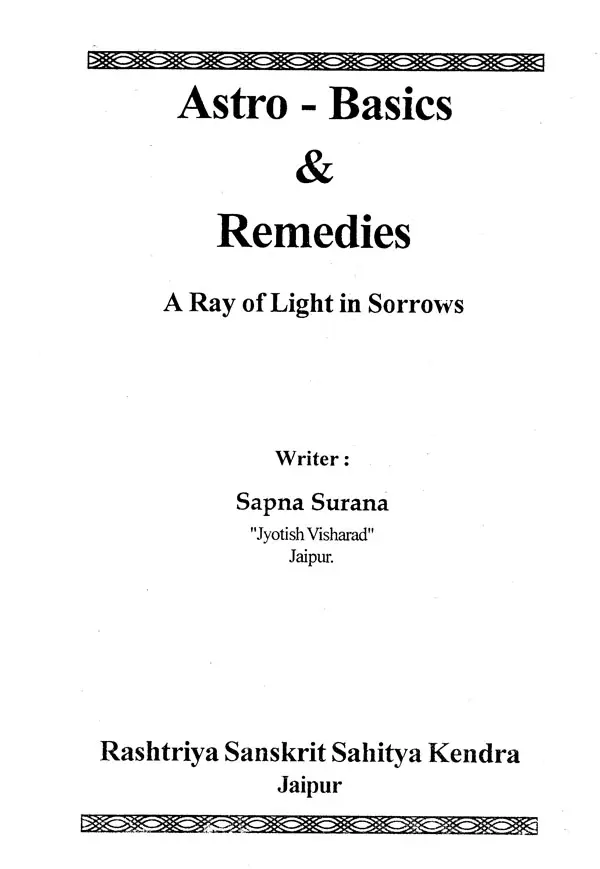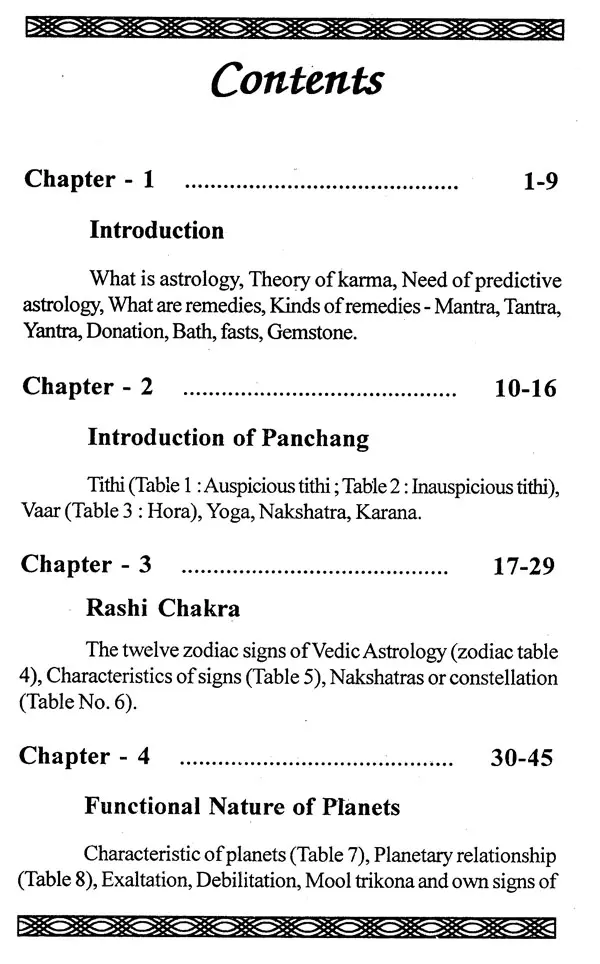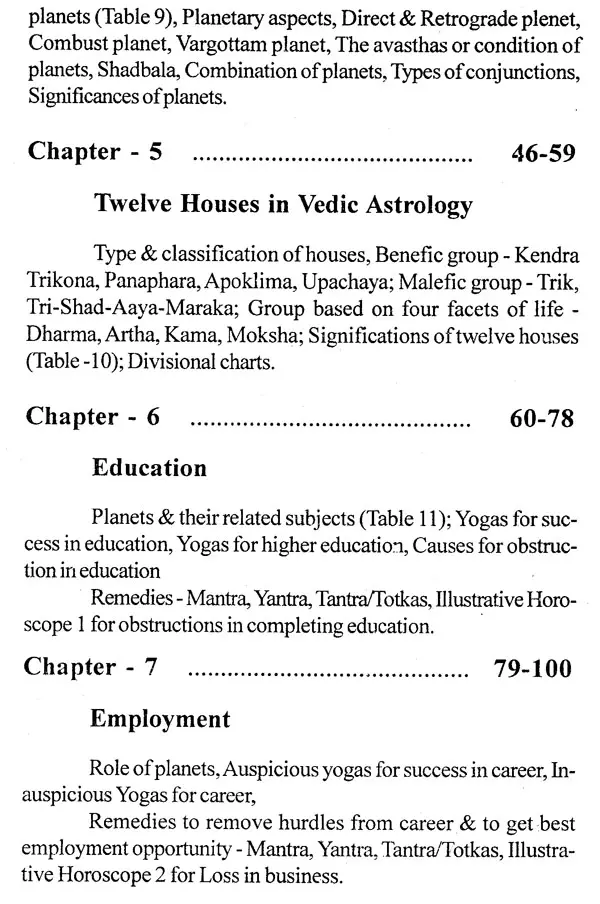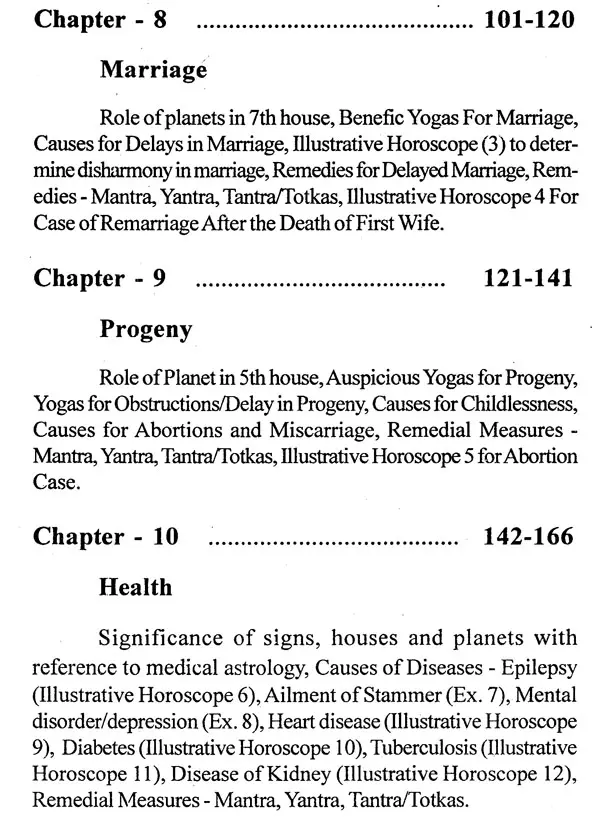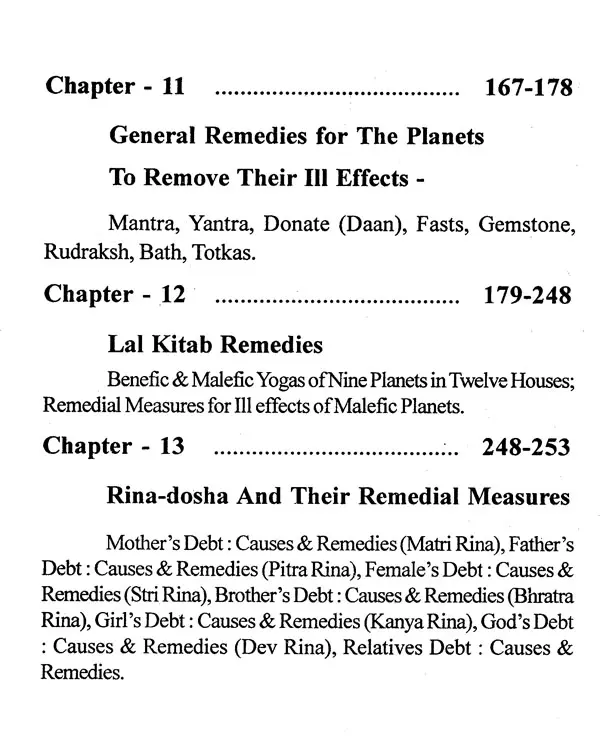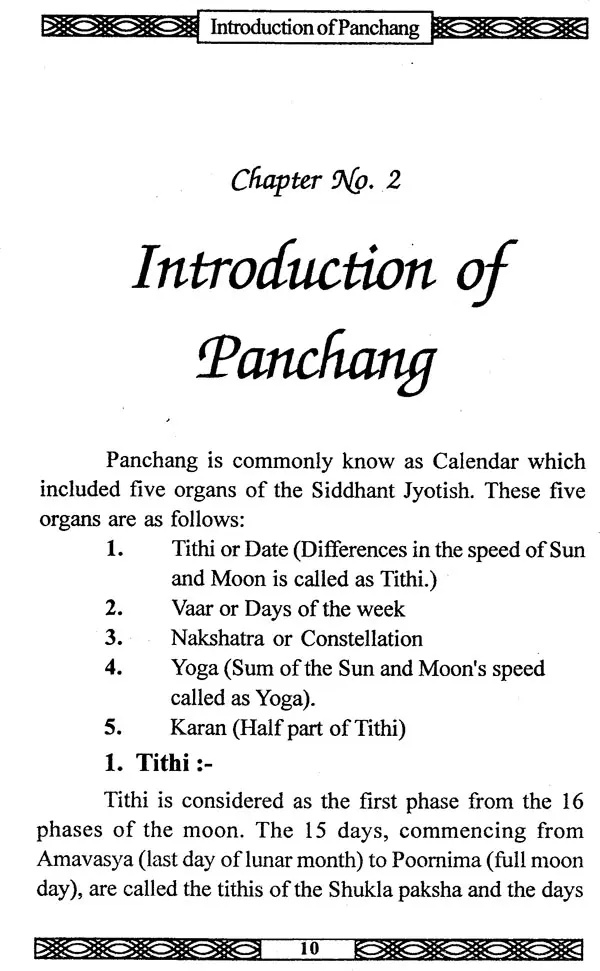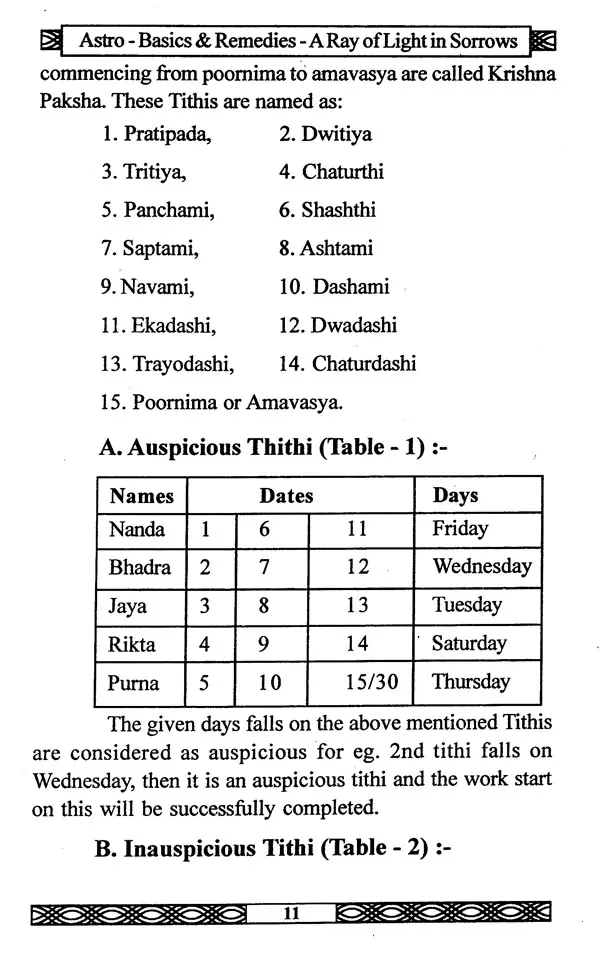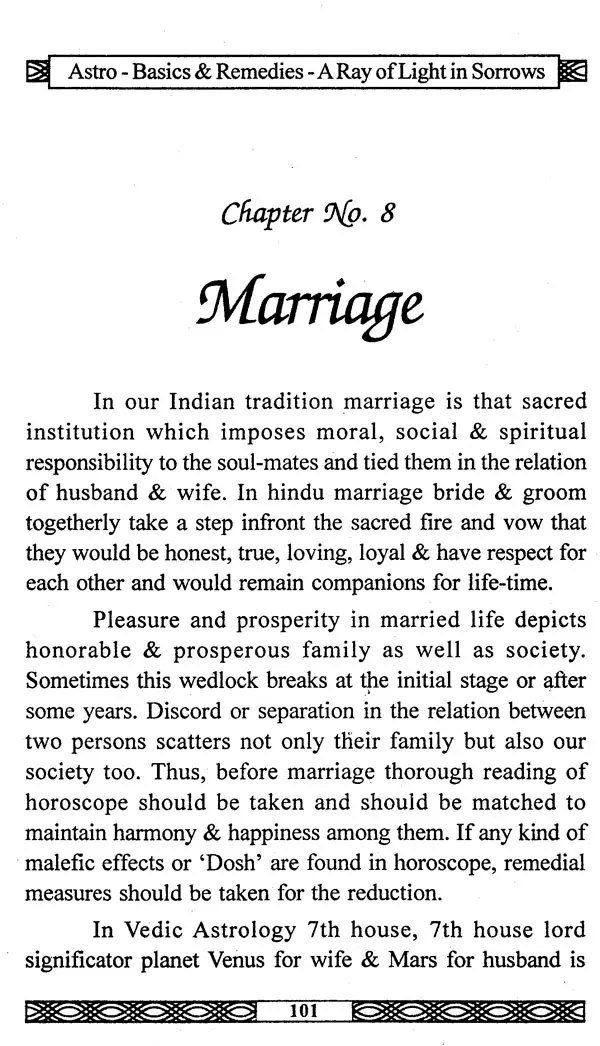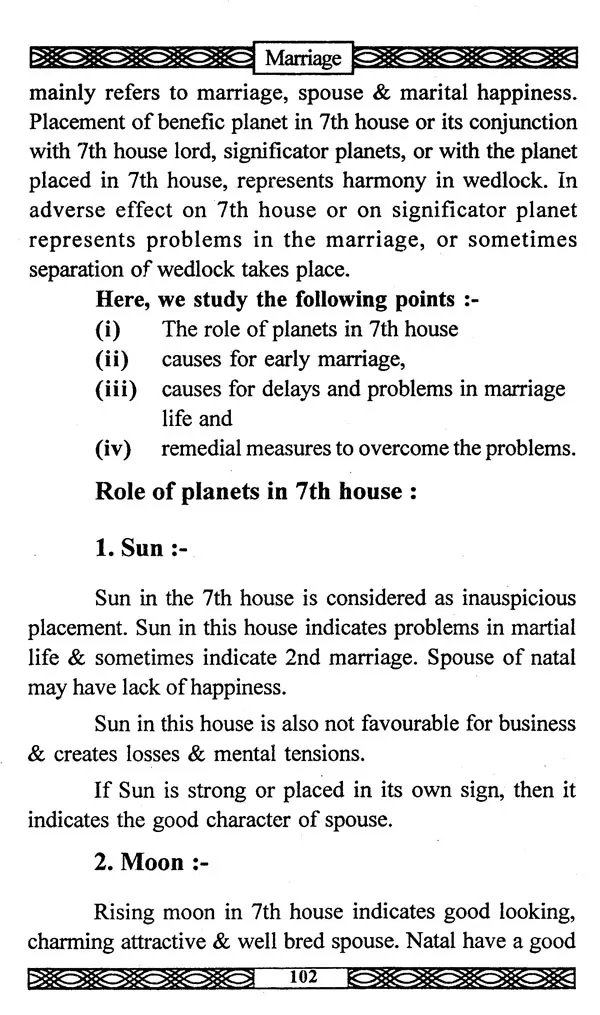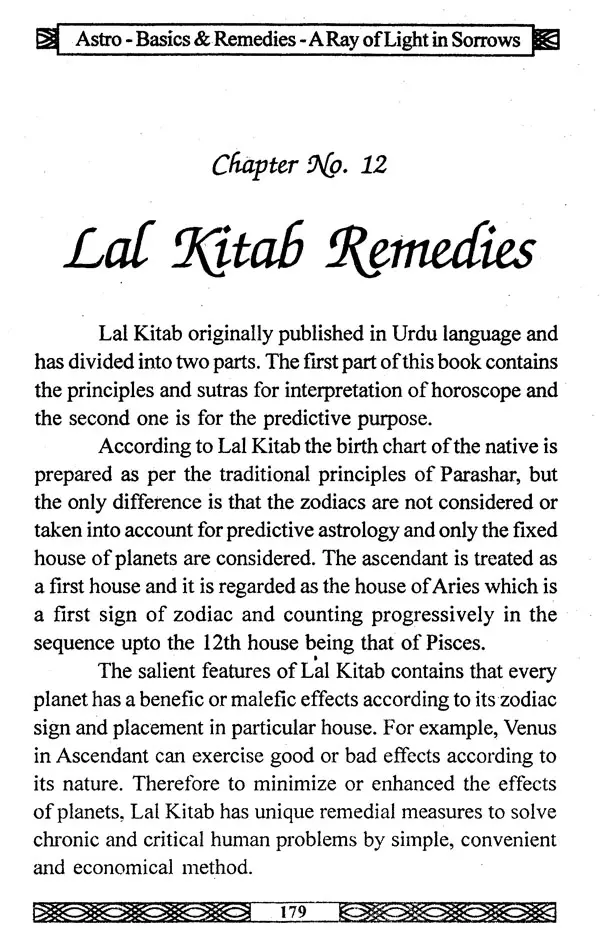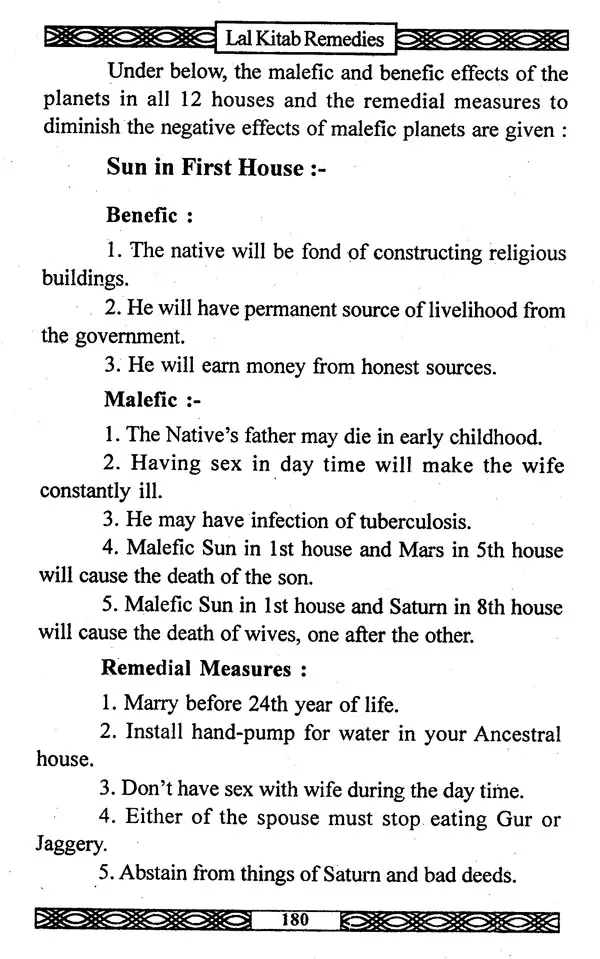
Astro- Basics and Remedies (A Ray of Light in Sorrows)
Book Specification
| Item Code: | UAN236 |
| Author: | Sapna Surana |
| Publisher: | Rashtriya Sanskrit Sahitya Kendra, Jaipur |
| Language: | English |
| Edition: | 2014 |
| ISBN: | 9788188741823 |
| Pages: | 253 |
| Cover: | PAPERBACK |
| Other Details | 8.50 X 5.50 inch |
| Weight | 270 gm |
Book Description
In this book author has not only dwelt with various remedies but also consolidated the basics of astrology. This is a comprehensive book which includes astrological causes for the obstructions with their subsequent remedial measures related to 9 planets with their effects. The author beautifully compiled the astrological principles and remedies through mantra, yantra, totkas and other laal kitaab remedies that are available in public domain so that it can be beneficial to both the layman & those interested in science of Astrology.
Sapna Surana, the author is a Masters in Economics and Financial Management. She is also a "Jyotish Visharad" from Indian Council of Astrological Science (ICAS) and currently pursuing Astrological studies as a keen student. She doesn't have any Astrological base however, her passion in Astrology is quite admirable. She gives annual predictions of signs, eminent articles on various field of Astrology for Calenders and Panchang namely "Jyotish Samrat Panchang (Jaipur) and Shree Mevarvijay Panchang (Udaipur)". She is working as an Editor in Magazine "Vedang-Vani". She also worked as a panel writer of Phalit Jyotish course in Vardhman Mahaveer Open University (Kota).
Broadly, Indian Astrology is popularly referred as "Vedic Jyotish". Jyotish is the Sanskrit word which is derivated from the combination of "Jyoti" and "Isht", which means "Light" and "God" respectively. Thus, literal meaning of Jyotish is "Divine Light". Jyotish is originated from Vedas, sacred scriptures of Hindus and most commonly from "Rigvedas". We also find astrological references abound in the great epics of India which determines its existence and concept. In reference of it Valmiki in Ramayana says, "that which happens suddenly and cannot be prevented even through efforts but creates a new inscrutable situation is the work of destiny."
In Mahabharata, particularly in Bhagwad Geeta, Shri Krishna says, "The unreal has no existence, the real never ceases to be. Knowers of truth have realized this." - Bhagwad Geeta : chapter-2, shlok - 16.
Astrology was not experimentally contrived, but rather percieve through enlightened vision by the ancient Sage Parashara, who is considered the original author of the Vedic astrological texts. He defines in his master piece, Brihat Parashar Horashastra that - "Astrology is the study of the cosmic objects usually planets and stars which influences the human lives". Its primary focus is to calculate the position of the Sun, Stars and planets at the time of an individual's birth as they empowered to predict the events of the present, past and future.
Vedic Astrology readings are based on the "Theory of Karma", which states that a human being lives and works within certain parameters created by actions performed in previous lifetimes. It includes fate and free will. Fate in karma means what we are having in present is the result of our past deeds from prior births and can be difficult to change, while free will in karma theory means that we make our future by our present actions. This was probably the reason behind the Swami Vivekanada statement that - "The will is not free, it is phenomenon bound by cause and effect, but there is something behind the will which is free".
Our benevolent actions/deeds will bring success and happiness whereas malevolent or papakarmas will cause of sufferings and troubles. Therefore, every action that we perform in life has its reaction. These karmas are categorised in three types - Sanchita, Prarabdha and Kriyamana.
**Contents and Sample Pages**
